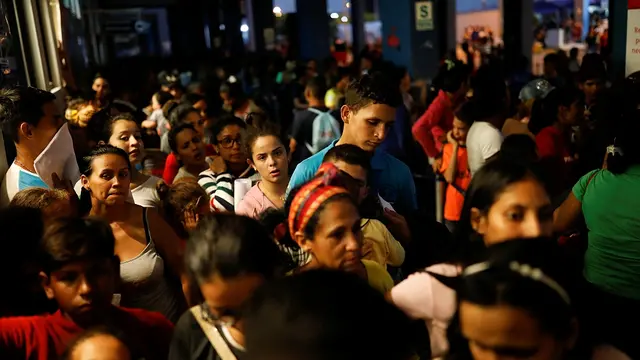Peru deported 150 Venezuelans for entering the South American country illegally as authorities sought to enforce stricter policies for migrants from the crisis-stricken nation, according to Peru's immigration office.
The immigrants were detained this week in a coastal desert region at Peru's northern border with Ecuador, part of a route taken by hundreds of thousands of Venezuelans who have migrated to Peru, Chile, and Argentina in recent years to flee from hyperinflation and shortages of basic food and medicine at home.
Authorities barred the migrants from entering Peru for 15 years and left them in Ecuador, the office said in a statement.
The announcement followed several days of local TV coverage of a gruesome murder involving Venezuelan gang members, fueling concerns about crime, a top priority for most Peruvians.
Venezuelan Liriannys Antoima calls passersby into a restaurant where she works as a waitress in Lima, Peru, April 4, 2019. /VCG Photo
Peru was once one of the most welcoming countries for Venezuelan migrants, granting them temporary residency so they could work and access public services. But as the number of Venezuelans in Peru has climbed to more than 850,000, fanning concerns about crime, jobs and social services, Peru cut the residency program short and toughened entry requirements.
Earlier this month, the government said that a new visa requirement for Venezuelans that it imposed in June had seen a 90-percent drop in legal entries and authorities would beef up security to prevent illegal crossings.
Peru, Chile, and Ecuador now require visas and hard-to-get passports from Venezuelan nationals. Colombia, home to the largest Venezuelan population outside Venezuela, continues to allow them to enter without visas.
By the end of 2020, the number of separated Venezuelans could double to 8 million, according to the Organization of American States.
Many Venezuelans in recent waves of migrants are trying to join family members.
(REUTERS)
 简体中文
简体中文

